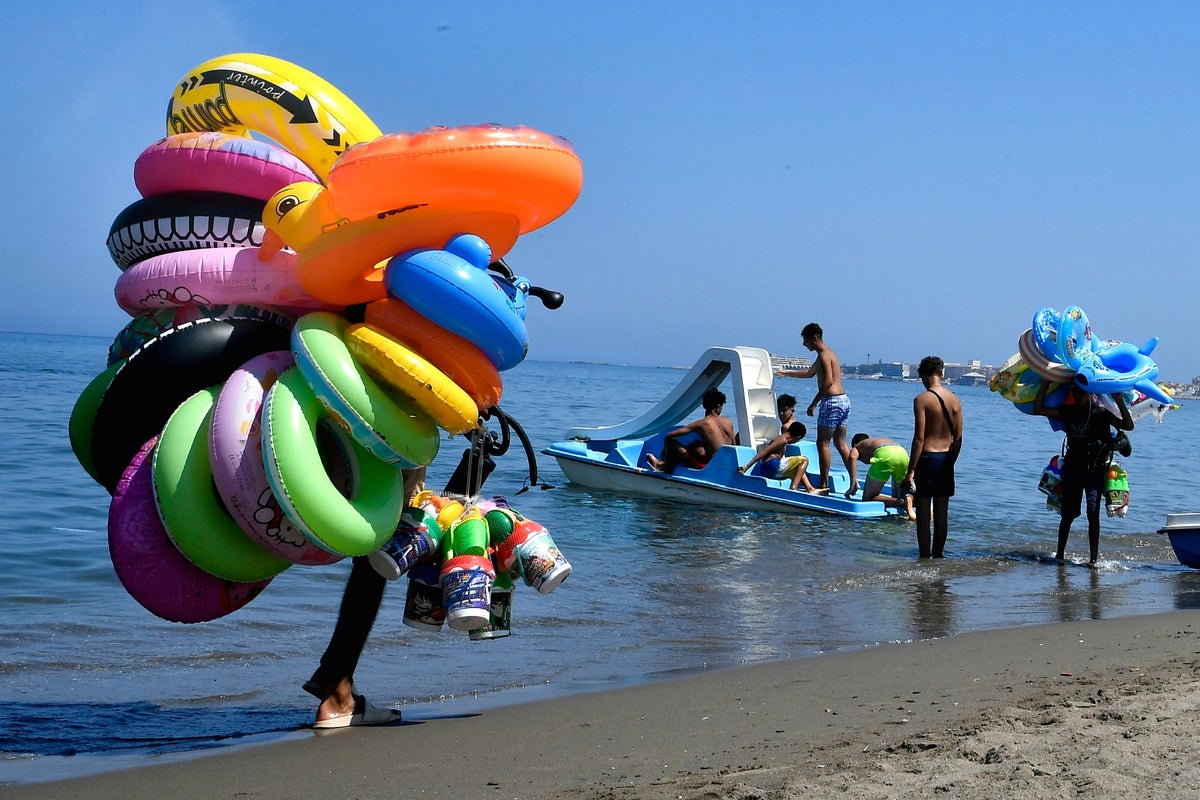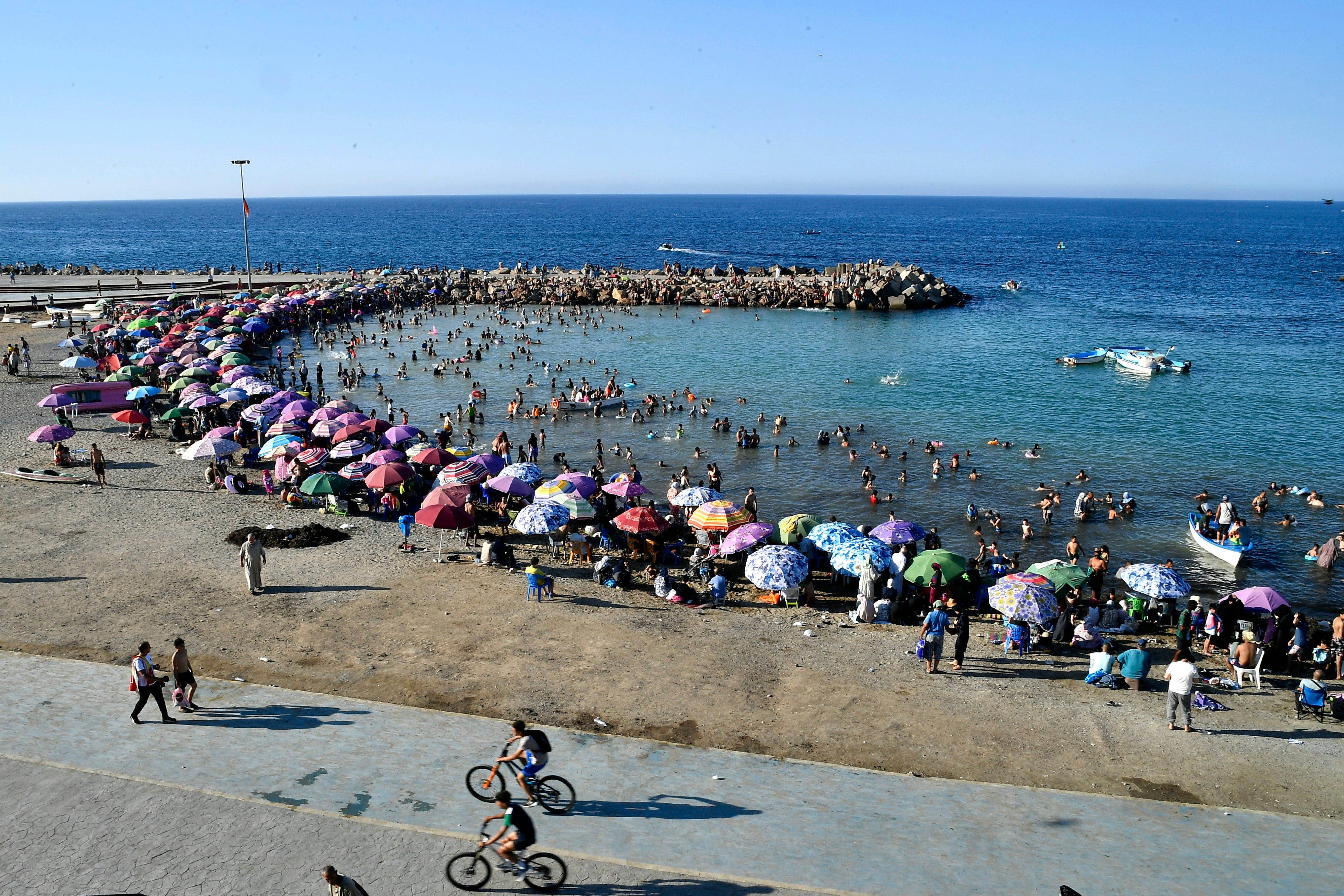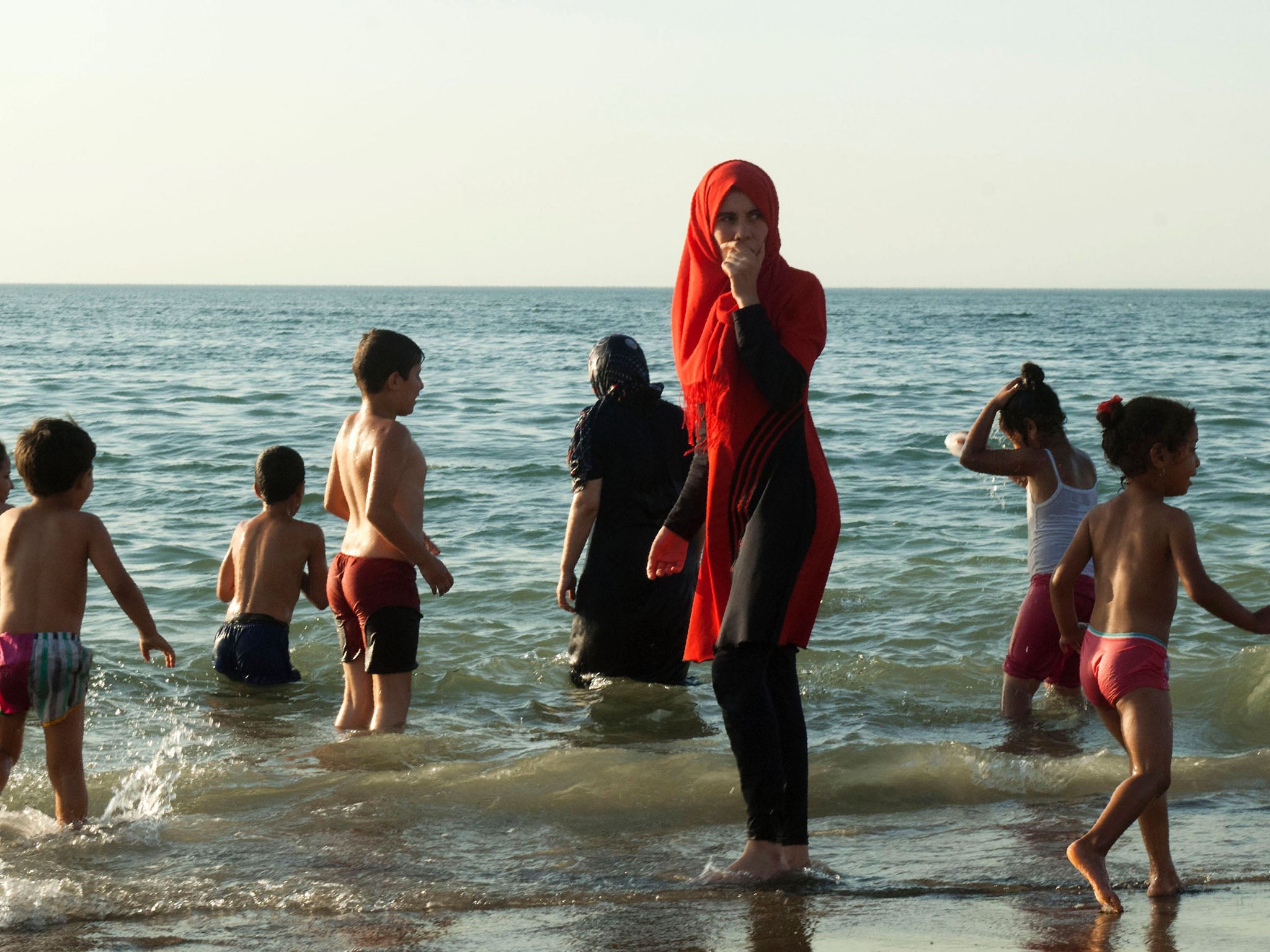Tourist hotspot in crackdown on ‘indecent’ clothing item that ‘disturbs the population’
The mayor says tourists’ outfits go against the beach town’s moral values

A picturesque Algerian coastal town, renowned for its stunning Mediterranean vistas, has become the unlikely epicentre of a cultural clash over men's swimwear.
Chetaïbi, a town of 8,000 residents, thrives on seasonal tourism, drawing thousands to its turquoise waters, rocky coves, and forested hills each summer.
This economic reliance has historically fostered a welcoming atmosphere.
“The mood is warm, welcoming, colorful, bustling – no hostility toward bathers, not in words, not in looks,” Salah Edine Bey, a long-time resident, said.
“People here have a tradition of hospitality.”

But a shift came earlier in July when the town's mayor issued a decree, catching vacationers and local businesses off guard.
The order banned beachgoers from wearing Bermuda shorts, deeming the attire "indecent" in contrast to the longer, looser styles favoured by more conservative male beachgoers.
“These summer outfits disturb the population, they go against our society’s moral values and sense of decency,” Mayor Layachi Allaoua wrote.
“The population can no longer tolerate seeing foreigners wandering the streets in indecent clothing."

The order sparked immediate backlash from officials, including in the regional capital Annaba, who called on the mayor to revoke it.
The mayor reversed the decree within two days. On Facebook, he insisted his order was not driven by Islamist pressure, but by a desire to preserve “peace and tranquility” for both residents and guests.
Still, the episode tapped into deeper tensions over religion, identity, and public space in a country that remains haunted by a civil war that killed an estimated 200,000 people throughout the 1990s. The conflict began in 1991, when the army canceled elections that an Islamist party was set to win.
The so-called “black decade” ended long ago. But it left unresolved some underlying friction between political Islam and Algeria’s military-backed secular state.
“Even though Islamists lost the war in the 1990s, they never gave up on their invasive and intrusive ideological project, which has gained ground in society,” sociologist Redouane Boudjemaâ said.
For some, the beach debate echoed that earlier era, when Islamist-run municipalities tried to reshape public life in line with religious doctrine.

For many Algerians, particularly in underserved regions, political Islam remains popular not out of extremism, but as a reaction to corruption, inequality, and distrust in state institutions. While Islamist parties have mostly fared poorly at the ballot box, they play a large role in daily life, filling social and moral voids.
In neighboring Jijel, residents have roped off parts of the beach for mass prayers, with videos of the scenes circulating online and dividing opinion.
For Halim Kabir, it is a stark reminder of the past. In the 1990s, Islamists who won local elections in Jijel imposed stricter rules on public behavior. Today, cars parked near the beach have been vandalised, with warnings telling beachgoers to “go sin elsewhere”.
“It’s provocation,” Kabir said. “An attempt to drive away visitors from other regions.”
Said Boukhlifa, a former senior official at the Ministry of Tourism, warned that conservative groups are exploiting Algeria’s economic troubles, as falling gas revenues strain the state, to expand their influence.
That, he said, could undermine the country’s ambitions to grow its tourism sector.

 JaneWalter
JaneWalter 






























